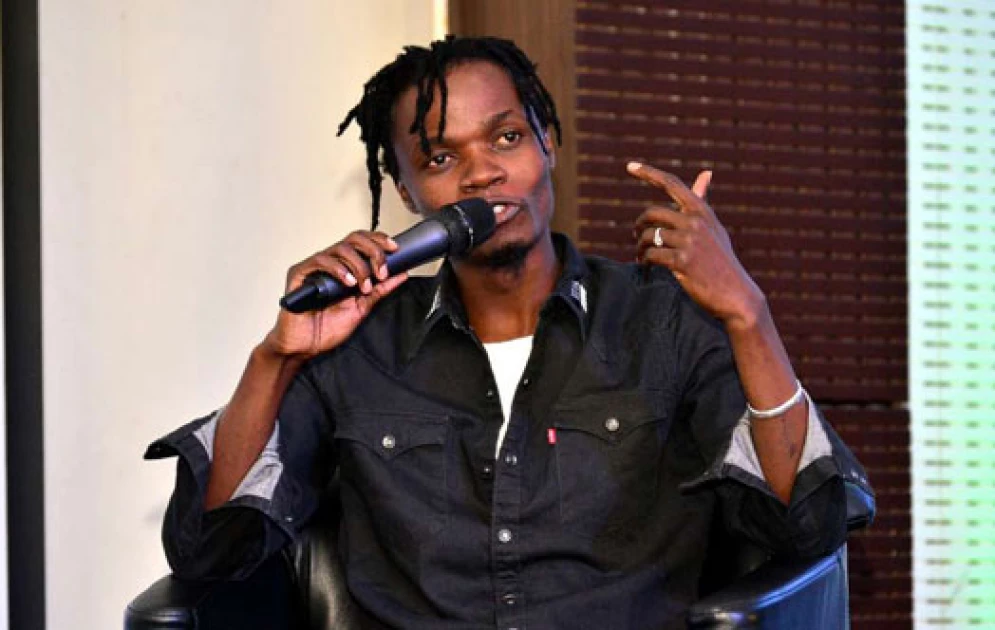Utawala: How the Juliani protest classic has still remained relevant, 11 years later


Audio By Vocalize
In 'Utawala', Juliani succinctly rapped about poor governance, decrying the country's runaway corruption, inequality and economic sabotage.
"Niko njaa hata siezi karanga... Hoehae shaghala bhaghala... Niko tayari, (kulipa) kulipa gharama... Sitasimama maovu yakitawala..." he rapped.
Across the country, from Nairobi to Mombasa, Eldoret to Embu, Kenyans gathered to sing the Juliani classic word-by-word, clenched fists raised high in the air, as the revolutionary spirit swept through the air.
While snaking through the teargas-filled streets of Nairobi, chocking in the toxic fumes and drenched in water, Kenyan protesters repeatedly sang out the Juliani chorus, their voices reverberating from skyscraper to skyscraper.
In unison, the crowds roared, "Ufisadi ubinafsi ukabila, kuuza sura hawataki kuuza sera, undugu, ni kufaana, sitasimama maovu yakitawala... Sitasimama maovu yakitawala.."
For years now, the evergreen Juliani lyrics have become the bedrock of all national uprisings and the singer himself has appeared in the streets alongside protesters as if putting an indelible stamp to a belief he pronounced years earlier.
A day before the Thursday protests, the veteran rapper threw a proposition to protesters - bring along a Bluetooth speaker and turn the revolt into a street party.
And in true conformation to his word, Kenyans, led by DJ Grauchi and MC Gogo brought out a massive speaker blaring the 'Utawala' classic alongside other revolutionary songs.
Many have resonated with the song for its unequivocal stand, explicitly calling for patriotism, liberty and resistance against tyranny.
According to TODAY, the use of songs as a narrative and a tool to convey an important message continued into the 20th century with Black Americans using their voices to help their fight for freedom and equality.
Today, many of the songs of the past eras still remain relevant as Black Americans continue to fight for various social issues, including environmental and voting rights, economic and healthcare equality, and criminal justice reform.
Writing in the newspaper Libération, French historian Clyde Marlo-Plumauzille said, "Because it can move people and make them move, because it speaks to everyone, because for so long it was the art of people whose voices were not heard, music has been part of popular protests since the Middle Ages."
Today, at worldwide political protests in places like Chile, France, Algeria and Hong Kong, the classics of protest music can be heard alongside songs taken from popular culture, often from the most unlikely sources.
At the same time, new songs by socially engaged artists are also making history as the new revolutionary anthems with the emotional power of the combination of music, symbolism and communal action lighting up the internet and sending shockwaves to the highest seats of power.


Leave a Comment